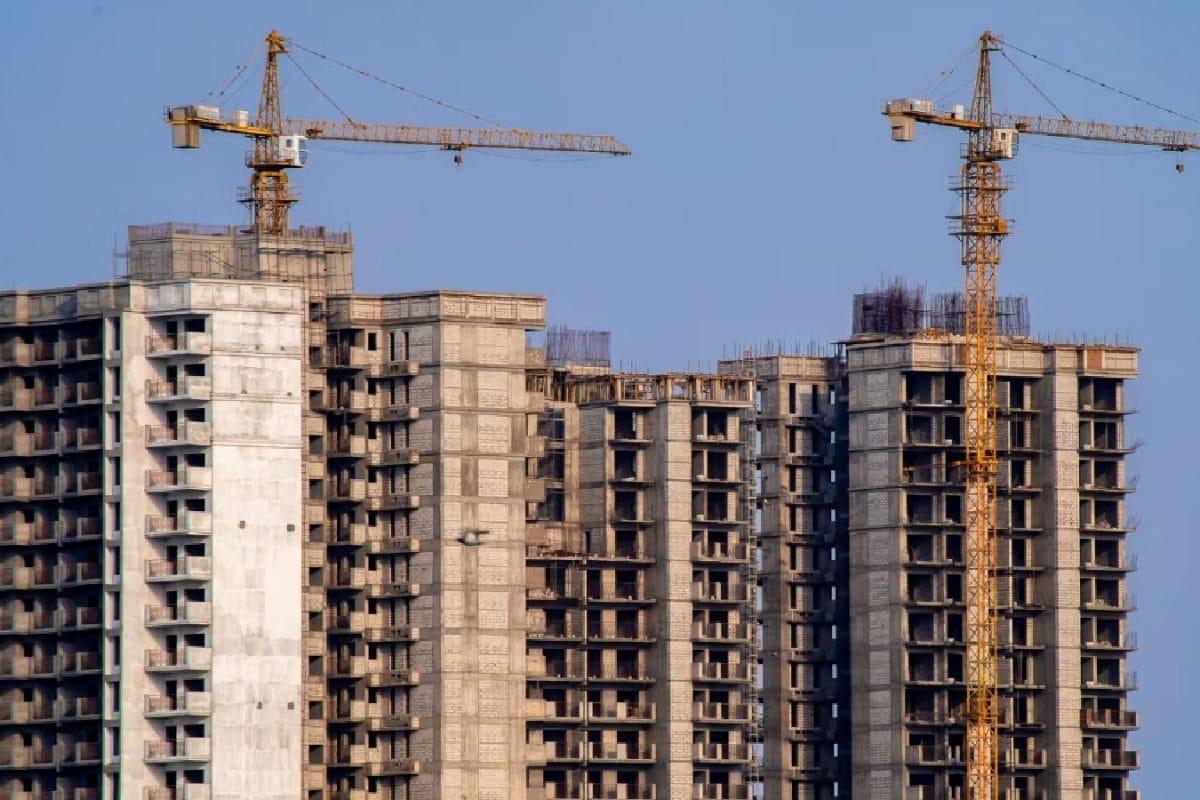Real Estate Developers Optimistic About Benefits of New GST Policy
Business BusinessPosted by AI on 2025-08-22 10:32:31 | Last Updated by AI on 2025-08-24 18:05:07
Share: Facebook | Twitter | Whatsapp | Linkedin Visits: 1

The real estate sector in India is poised to benefit from the recently announced GST 2.0 policy. With its simplified two-slab tax structure and streamlined compliance process, developers across the country are optimistic about reducing project costs and enhancing affordability for buyers.
The previous GST regime, with its multiple tax slabs and complex procedures, was often criticized for adding to the cost of construction and complicating tax compliance for developers. This served as a considerable roadblock in ensuring affordable housing for all. However, with the new policy, there is hope that these challenges will be mitigated, as it aims to reduce the tax burden and simplify compliance for the sector.
According to experts, the two-slab system, with a tax rate of 5% for most residential properties and a reduced 1% rate for affordable housing, will help to reduce project costs significantly. This, in turn, could potentially unlock investment and boost buyer sentiment, ultimately fostering more residential transactions.
Some are suggesting that the new GST policy signals a positive move by the government to boost the real estate sector, and could help to strengthen an industry that has been struggling in recent years.
The real estate industry and experts alike remain optimistic about GST 2.0, anticipating a positive impact on both project development and demand. The new policy is set to simplify the tax regime and make housing more affordable, thus serving as a driving force for recovery and growth in the sector.
Conclusion:
With the implementation of GST 2.0 underway, the real estate sector in India is poised for improvement, particularly in terms of tax compliance and reducing the tax burden. Developers across the country are optimistic about the simplified tax structure and streamlined compliance process, which they say will reduce project costs and increase the affordability of housing. Experts believe that these changes will help to unlock demand and boost buyer sentiment, leading to increased residential transactions and ultimately strengthening the real estate industry.
Search
Categories
- Sports
- Business
- History
- Politics
- International
- Science & Technology
- Social Issues
- Disaster Management
- Current Affairs
- Education
- Startup Business
- Startup News
- Awards
- Community Services
- Fundraising Events
- Volunteer Services
- Health Initiatives
- Innovations and Initiatives
- In News
- dummybanners
- Awards
- Partners
- Products
- Press Releases
- News
- Fast Check
- South
- సినిమా
- Gallery
- Sunday Chronicle
- Hyderabad Chronicle
- లైఫ్ స్టైల్
- National
- క్రైం
- ట్రెండింగ్
- జాబ్స్
- అంతర్జాతీయo
- బిజినెస్
- రాజకీయం
- బిజినెస్
- సంపాదకీయం
- నవ్య
- చిత్ర జ్యోతి
- క్రీడలు
- జాతీయం
- తెలంగాణ
- తాజా వార్తలు
- మన పార్టీ
- మన నాయకత్వం
- మన విజయాలు
- డౌన్లోడ్స్
- మీడియా వనరులు
- కార్యకర్తలు
- North East Skill Center News
- Government Schemes
- Entrepreneurship Support
- Employment Opportunities
- Skill Training Programs
- Departments
- Investments
- Initiatives
- Resources
- Telangana IT Parks
- Events & Jobs
- Press Releases
- News
- Airport News
- Newtons Laws of Motion
- Karbonn in Business
- Investments in Karbonn
- Company quarterly sales
- Markets
- Auto News
- Industry
- Money
- Advertisements
- Stock target
- Company Updates
- Stock Market
- Company Sales
- Staffing and HR
- Constituency Assembly
- General News
- Srikalahasti Temple
- Bojjala Sudhir Reddy
- Technology & Innovation
- Sports
- Business
- Products
- Industries
- Services & Trainings
- Tools & Resources
- Technology Integration
- Drug Seizures & Arrests
- Telangana Narcotics
- Law & Enforcement
- Rehabilitation
- Nationwide Drug Policing
- Nigeria Seizures
- Global Operations
- Drug Awareness
- Drug Enforcement Tech
- NCB Drug Seizures
- Judicial Crackdown
- India's Surveillance Tools
- Cross-Border Links
- Women Safety
- Cyber Crimes
- Drug Abuse
- Traffic & Road Safety
- Community Connect
- Public Safety Alerts
- Citizen Assistance
- Nellore City News
- Politics & Administration
- Events & Festivals
- Agriculture & Rural
- Business & Economy
- Health & Wellness
Recent News
- TVS Motor Rides High on Scooters; MD Reveals Why
- Ex-Cricketer's Shocking Accusation: 'Gautam Gambhir Strikes Fear'
- Indian Football Dispute Puts AIFF, FSDL Under Supreme Court's Lens
- 'ECI discredited, G2 puppeteers defeated': Congress on SC directive
- 'Sachin Has Always...': The Untold Story of a Legendary Friendship
- Tokyo 2020 Medalist Arjun Lal Aiming For LA28, Despite Injury
- Badminton Shuttlecock Shortage In India: BWF Says It's Not A 'Crisis' Yet
- Eddie Howe Optimistic Despite Lack of Transfer Business